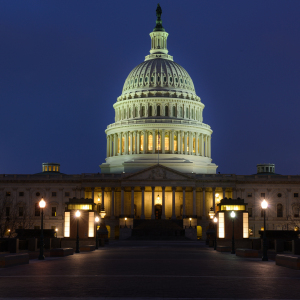Most pundits are predicting a Republican take-over of the U.S. Senate next Tuesday. I am ready to go on record against the conventional wisdom: I predict Democrats will surprise the pundits on election night and hold the Senate, if only by a 50-50 margin, with Vice President Biden breaking the tie.
My slight-underdog picks of the night: Mark Pryor and Michelle Nunn, because their message of decency and bipartisanship are perfectly aligned with what voters want not only in their states of Arkansas and Georgia, respectively, but across the nation.
However, if Republicans win the Senate, I respectfully suggest they avoid premature celebration, for there are three traps looming for them if they misread the election results.
First, they could misinterpret their victory as a mandate to implement a hard-right agenda. Remember the aftermath of Newt Gingrich’s House takeover in the 1994 midterms. The conservative revolutionaries attempted to pass draconian budget cuts, including in Medicare and Medicaid, caused two government shutdowns and attempted to impeach then-President Clinton on an entirely partisan basis — all contrary to public opinion. As a result, just four years later in the 1998 midterms, Democrats picked up five seats. This was the first time in 176 years (since 1822, under President James Monroe) that the non-presidential party had failed to gain seats in the midterm elections with a president in his second term.
The second mistake could be that the Republicans who now control both houses of Congress will be unable to resist the Tea Party base to roll back Democratic programs on an entirely partisan basis. If they do so, they will be ignoring all the current polling data showing voters opposing such partisan power plays. And they will own the results. For example, if Republicans repeal ObamaCare on party-line votes, they will have to explain why people with pre-existing conditions will no longer have health insurance if they attempt to find new insurance after losing their jobs.
Third, once the GOP is the majority party in both houses of Congress, Republicans will find it more difficult to suppress three powerful ideological groups within the party whose positions on key issues are way out of touch with most voters, according to national polls. These are 1) Tea Party extremists, who favor dismantling much of the federal government, including Social Security and Medicare as we know it; 2) Christian right true-believers, who believe in criminalizing all abortions, including involving rape and incest; and 3) the New Isolationists, whose positions at times seem reminiscent of the America First movement of the late 1930s. As the majority party in both houses, the GOP will have lost its excuses not to enact legislation consistent with these extreme views, even though doing so will likely alienate many thoughtful Republican conservatives.
Which leads me to my warning for my fellow Democrats: if we lose the Senate next Tuesday night, we have to resist the advice of those pundits and strategists who will misinterpret the results as proof the party needs to be more strident in demonizing those who disagree with us.
Here it is important to remember the lessons of Bill Clinton’s two presidential campaigns and two terms as president.
Clinton’s economic and social policies were progressive by any definition: increasing taxes on the wealthy, pro-choice, pro-environment regulation, pro-minimum wages, etc. But he also focused during his two presidential campaigns on unifying themes addressed to the middle class and individual responsibility. In doing so, he won states now deemed irretrievably “red” by many, such as West Virginia, Kentucky, Tennessee, Georgia, Arizona, Arkansas and Montana. Barack Obama’s historic campaigns and brilliant grassroots organization carried on this broad electoral college base to the advantage of future Democratic presidential candidates.
It appears that most Democrats are happy with watching the Republicans head over the cliff trying to prove who has the purest ideology of all and don’t wish to join them in such an exercise. Of course they want vigorous competition for the nomination. But unlike Republicans, they prefer candidates who can civilly debate fact-based solutions and can effectuate bipartisan compromises to break the gridlock in Washington.
Such Democrats (this writer included) believe, as President Obama has said frequently, that elections matter.

